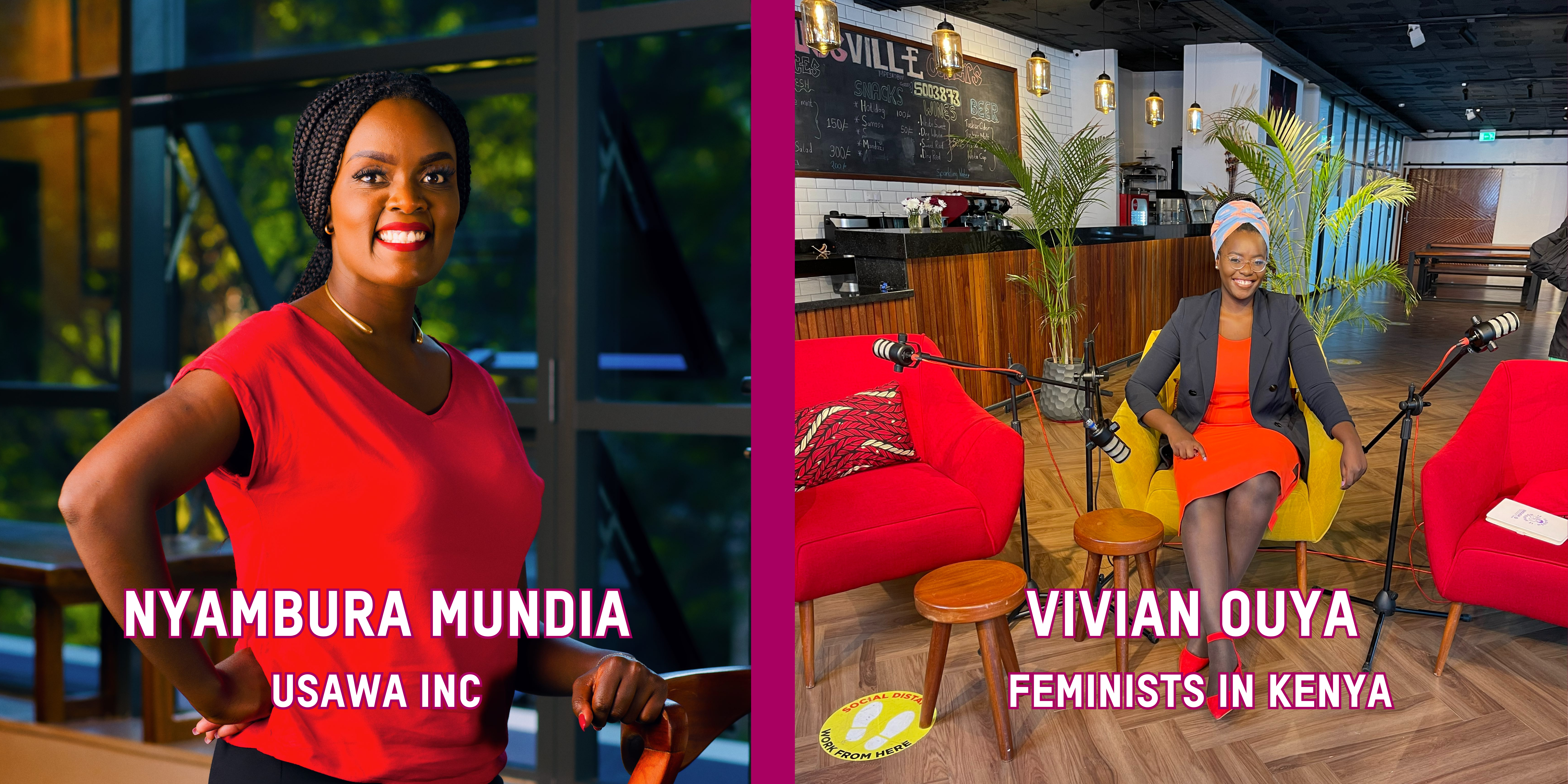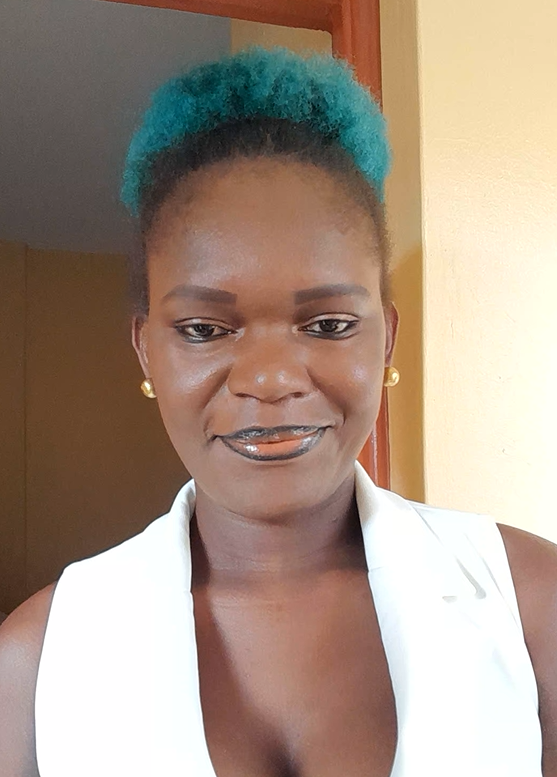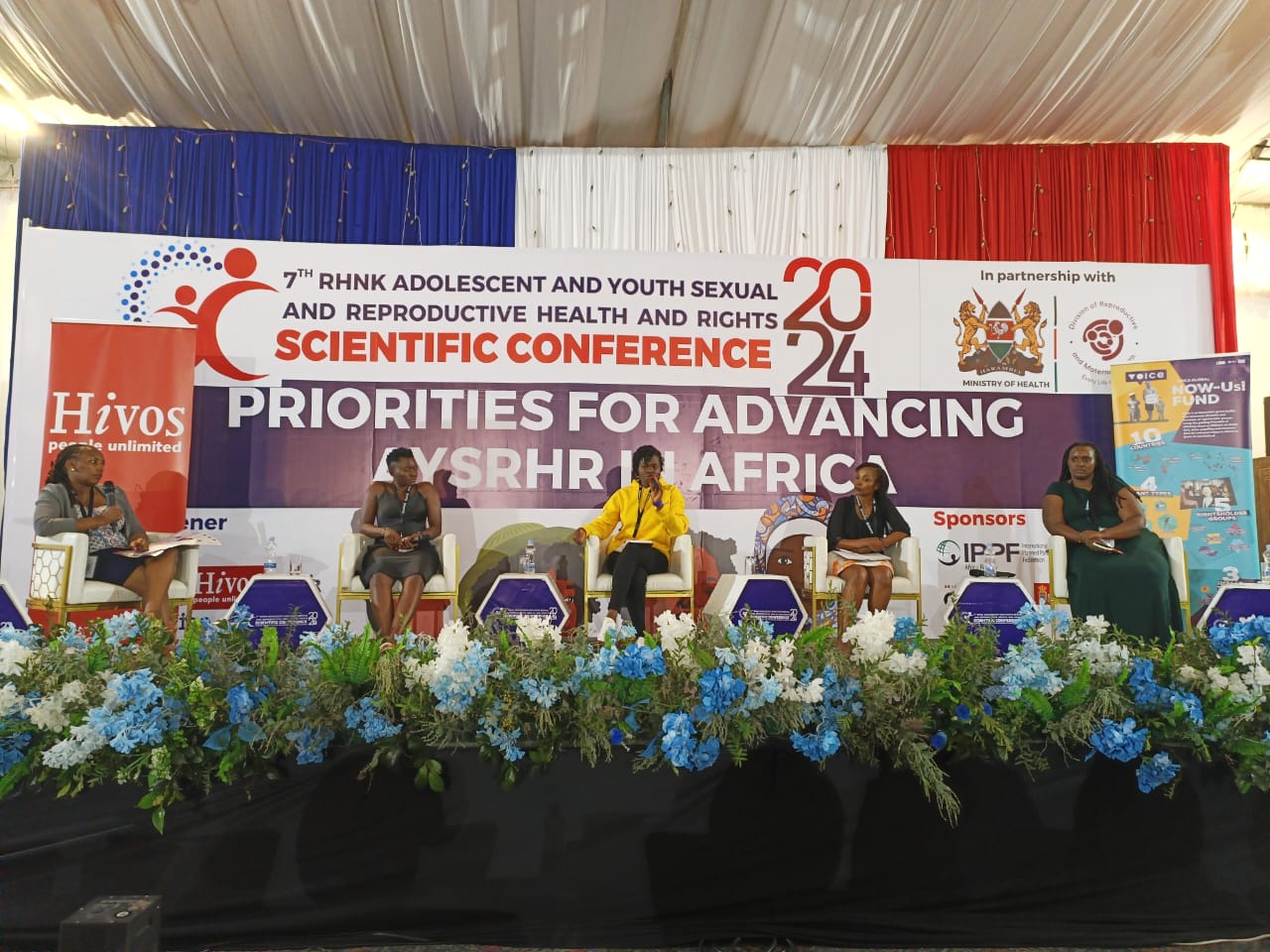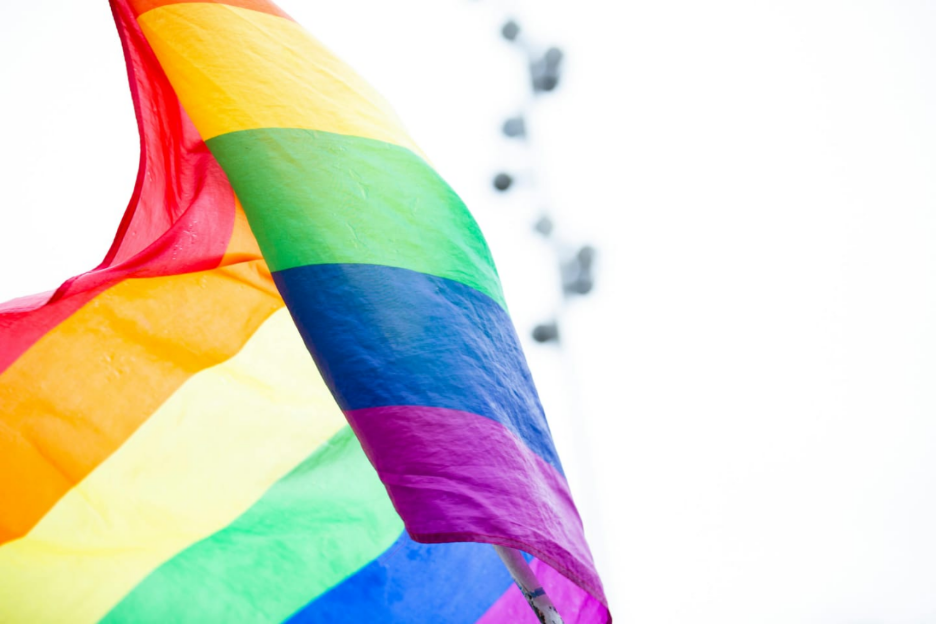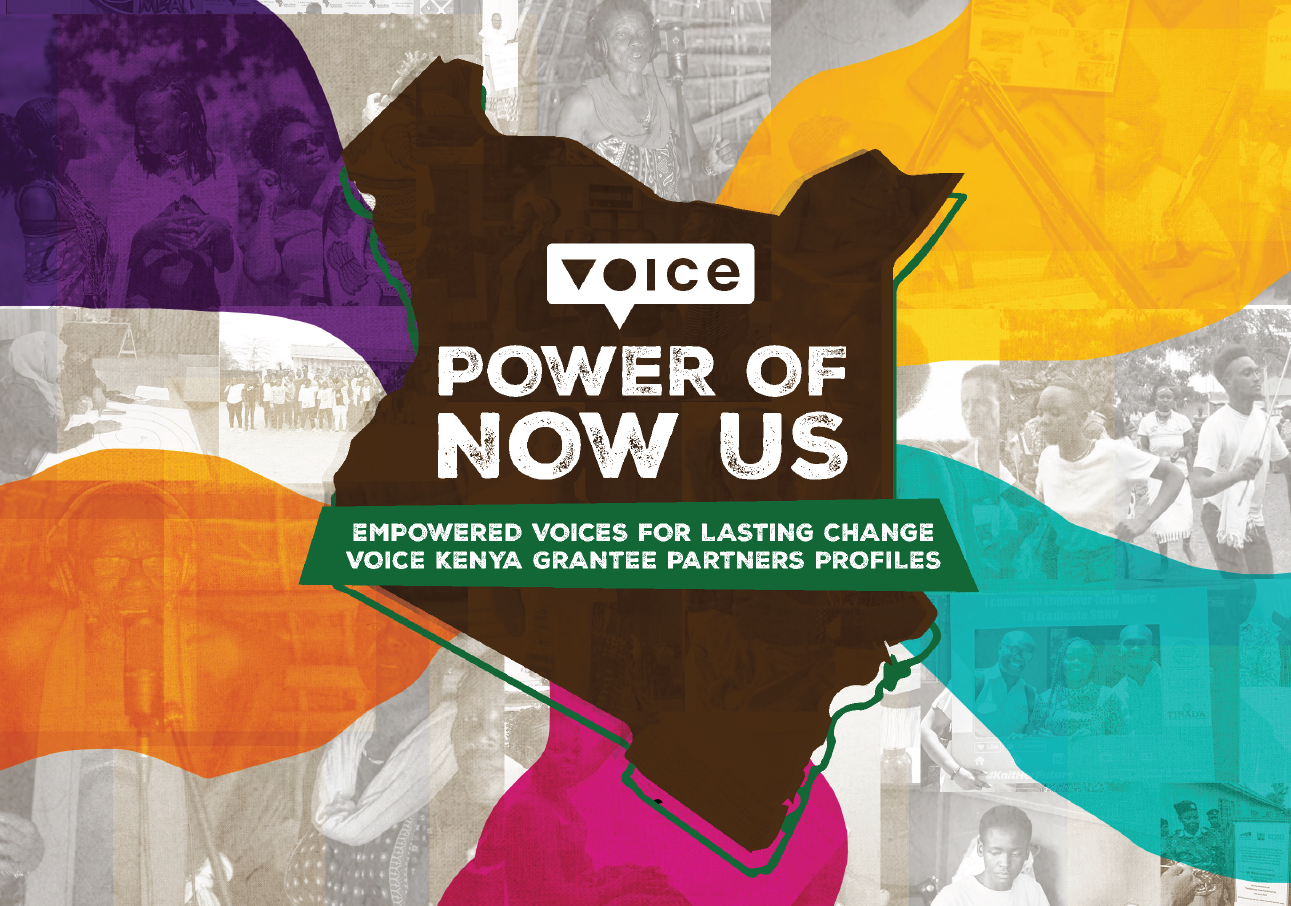Reimagining representation in media
By Martha Mwatha, Feminists in Kenya
Feminists in Kenya (FIK) is a grantee partner under the Innovate and Learn Grant, currently implementing a project titled ‘God Loves LGBTIQ’ under the Faith, Feminism and Freedom series. The project seeks to create a digital resource hub, a visual articulation of feminism and religion to advance solidarity with the LGBTI community as they navigate being religious and queer. Martha participated in the 1st edition of the Africa Media Festival on the 14th and 15th of February 2023 and would like to share with everyone her experiences during the two-day festival.
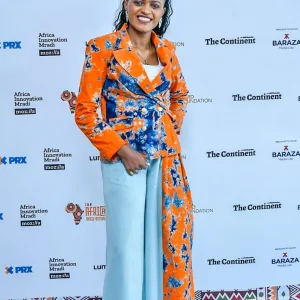
A few weeks ago, I attended the African Media Festival as a representative of Feminists in Kenya under the Voice programme.
Being a feminist, my main aim was to find conversations that centered on women and LGBTQ+ persons either through representation, amplifying their voices or platforming them. In any room I knew I could push for their being moved from the margin to the centre, I entered and ensured my voice was added to the conversation.
The theme this year was “Reimagining Media”. Ours was to help media practitioners chart better how news reporting, storytelling and writing of articles can be done. On these two days, some of the greatest minds in Media from Africa sat with various stakeholders as we deliberated and tried to reorient our minds to develop the best possible media practices.
The first thing that captured my attention was the conspicuous absence of the LGBTQI+ community as a part of the agenda. While the discrimination was not overt, the subtle hint was not lost on me. I took the suggestion gracefully; after all, we (myself and other Voice representatives) were at the festival, and a win is a win.
The unsettling part about this was that we had to find intelligent ways to slip our agenda in and centre the voices of the rightsholders we were representing in various conversations without rattling the powers that be. As I often say, you must always anticipate all case scenarios and create space for yourself boldly, even in spaces where you would otherwise not be invited. Space is taken, not handed.
Even just saying this makes me fume a little because nobody should have to jump through these many hoops to have their humanity recognised. Considering the many intersecting axes of inequality queer people endure, this should have been the one space they felt welcome to amplify their voice and plight. Worse still, the gender question was reduced to violence against women, erasing LGBTQI+ people from the conversation. At the same time, men stood outside, offering solutions as if they were not part of the subject.
Media plays a very crucial role in how people form their identities, social norms and values in relation to gender. So to see such a big festival being critical of queer issues speaks to a deeper problem which is homophobia, transphobia and sexism in the media space. Therefore, it is no surprise that our news reports have been awash with blatant homophobic rhetoric since the apex court allowed the registration of LGBTQI+ lobby groups.
The pushback is not coincidental. The media played a big part in spreading mass panic, which led to a spike in homophobia and gender critical takes through their reporting.
In a world that thrives on patriarchy, sexism, misogyny, homophobia and transphobia, women and queer people often bear the brunt of reckless journalism. Media practitioners must be conscientious about the language they use to deliver news, not to produce or reproduce violence and abuse against an already oppressed demographic.
It was not all gloom at the festival, though; I got to sit and learn from some of the most progressive people in different sectors. I witnessed brave women call out the lack of representation and diversity on other panels. Given that Kenya is more than 50% women, it was only fitting that the women spoke the truth to power and demanded to be included. As we say, Nothing for Us Without Us. I would like to push the envelope further and say there’s beauty in diversity. Let us demasculanise the media and platform for more women and queers.
That said, below are the lessons I picked up at the festival.
With the growing sophistication of misinformation, we have seen how dangerous weapon misinformation is, especially in contributing to femicide, hate crimes, violence, abuse and murdering of queer people. My takeaway from the conversation was the need to always fact-check before being reactionary or putting out false information. We, social media users and especially media practitioners, must be change makers and continue to advocate against mis-/disinformation.
On the need to allow queer people and women to tell their own stories in their own language. I learnt that Africa is a melting pot of diverse cultures and languages. In each of these cultures, women and queer people face the same kind of oppression. The only way to ensure their plight is being addressed is to allow them to tell their own stories as best as they know how. Every story is important. Every story is valid. Every story is worth telling, and through these stories, we can document our wins in the fight for equality.
Another critical strategy I picked up was the need to embrace social media to create cross-movement collaborations and to educate the masses on why the liberation of women and queer people is essential to the thriving of our society—not forgetting memes as a tool for education. Memes are easy; they are fun and offer comic relief while advancing education on different topics.
On the stories that are missing within the African Media Landscape. It was pointed out that politics and blood stories are sellers, but more must be told. Our stories of greatness, struggles, joy, resilience and resistance as women and queer people are everywhere. How we tell them is what needs to shift. We must remember why we are telling our stories and change the little stories we think are insignificant around us into big stories for our voices to be heard.
Having interacted with so many topics, I had two questions I raised:
First, I wanted to know where the media draws the line between profits and human rights in an era where clout and click baits dominate, with women and queer people being the main victims. This was motivated by the need to understand the ethics and conduct policies in media and reporting. I was happy to learn that media practitioners work regular training to sensitise their members that their loyalty is to the people and the need not to place profit over humanity.
Second, in telling and documenting the stories of the marginalised, I was interested in knowing how the media ensures they are not committing brain drain or stealing knowledge from women and queers, especially from slums, rural areas and marginalised communities through appropriation in the guise of telling our stories as Africans. The need to always go back to the source of the story and connect with knowledge keepers/rightsholders was emphasised as it cascades down to the content we create because the knowledge is straight from the start in its unadulterated form.
Overall it was a wonderful space to learn, disrupt, build partnerships and collaborations and co-create knowledge and strategies for advocacy in the media with other stakeholders.
My only hope is to see more women and queer voices captured and better, more humane, more respectful, and kinder reporting on women and queer stories. After all, without women and queer people, there is no community; without community, there is no liberation. Therefore, the emancipation of women and queer people is a prerequisite to the liberation of society.
To joy, community and resistance.

